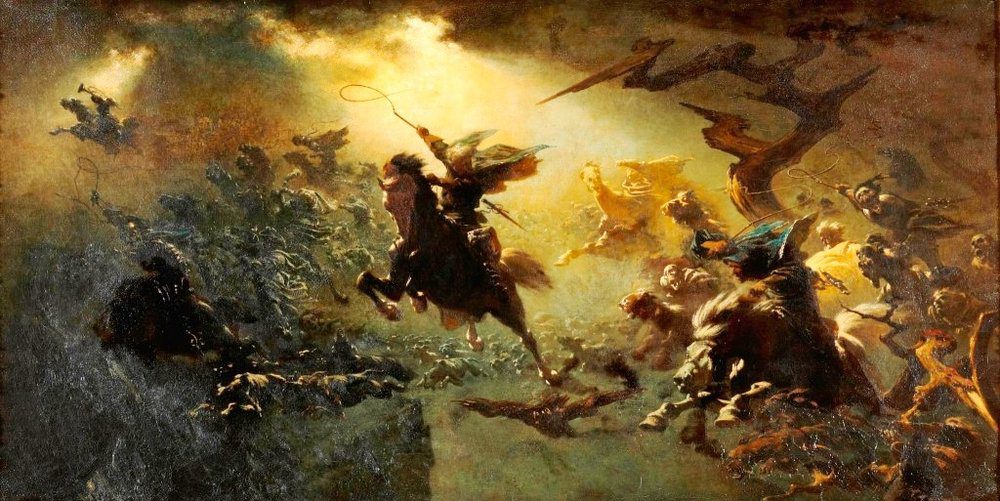Norse mythology is a long-standing European religion rooted in the Germanic and Scandinavian parts of the continent. It is filled with fantastic creatures, gods, and goddesses that have been passed down orally and in ancient documents from one generation to the next.
Norse mythology was very important to the Vikings since they held a pantheon of goddesses and deities who controlled over many aspects of Earthly life. These gods had complex, strong personalities that frequently conflicted with one another. The 15 most important gods and goddesses in Norse mythology are listed here.
1. Odin
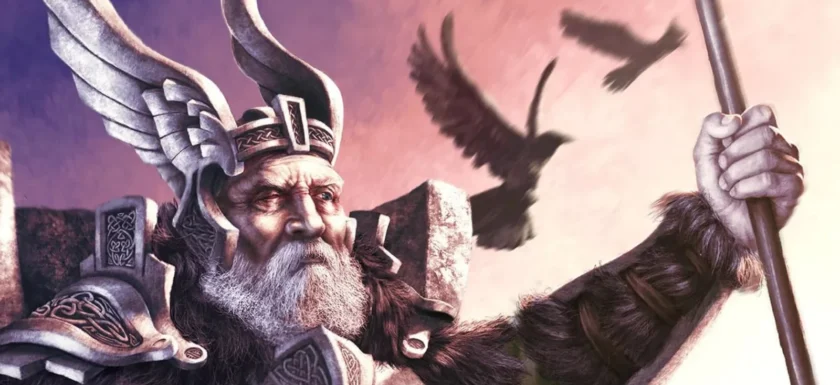
About:
The Allfather, often known as Odin, is one of the most important gods in Norse mythology. He is the god of poetry, magic, battle, and death. Odin is typically shown as a bearded, one-eyed guy holding a spear and wearing a cap with a wide brim.
As the ruler of the deities and the administrator of Asgard, Odin is in charge. Odin is also linked to the female fighters called as the Valkyries, who determine who will live or die in battle.
2. Thor
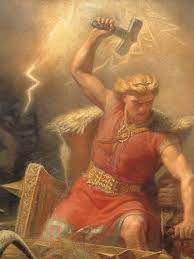
About:
Thor is one of the most well-known gods in Norse mythology and is the deity of thunder and power. He is typically shown as a powerful man with red hair, a beard, as well as a hammer called Mjolnir in his hand.
The protector of Asgard and Midgard, the realm of mortals, Thor is known for his immense strength and fearlessness. As the son of Odin, he also has a connection to fertility. Thor is frequently requested by humans to defend them from giants and other adversaries, and his hammer is thought to be a representation of his might and defense.
3. Loki
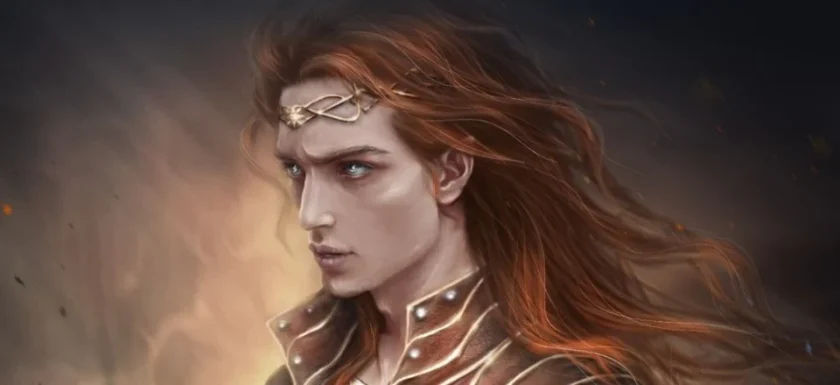
About:
In Norse mythology, Loki, the god of mayhem, trickery, and chaos, is a nuanced figure. He is typically characterized as being a cunning and mischievous guy who enjoys stirring up trouble and fighting. Loki is recognized as a part of the Norse pantheon although being the son of two giants due to his close relationships with the gods.
Even though he is chaotic, Loki has been shown on occasion utilizing cleverness to aid the gods. Yet, he is also responsible for some of the worst tragedies in Norse mythology, like Baldur’s death.
4. Freyja
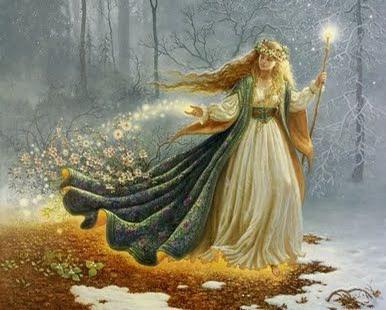
About:
Among the most famous gods in Norse mythology is Freyja, who is the goddess of romance, fertility, war, and magic. She is typically represented as a beautiful blonde-haired woman who personifies desire and sexuality.
Freyja is a powerful warrior goddess who is famed for her bravery and fortitude under pressure. She is the leader of the Valkyries, a group of fierce women that decide who will live or die during the battle.
5. Freyr
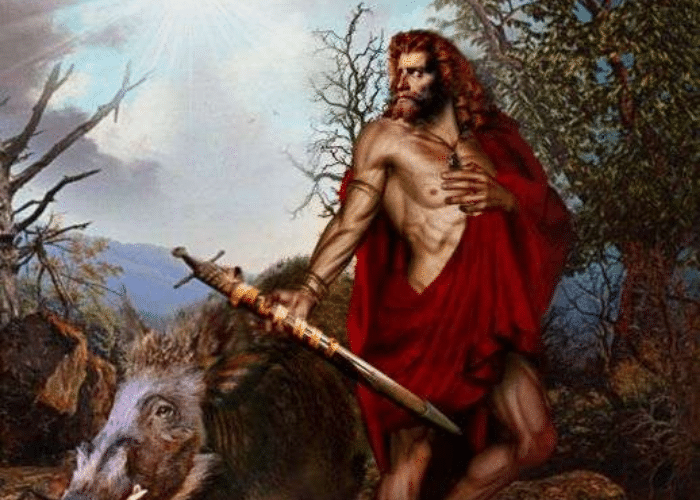
About:
The god of fertility, abundance, and harmony is Freyr. He is frequently portrayed as a charming and attractive man wielding a strong, magical sword that he utilized to manipulate the seasons and bring wealth to the nation. Freyr is a member of the Vanir, a group of gods who were thought to be connected to nature and fertility. He is Freyja’s brother and the offspring of the sea god Njord.
6. Hel
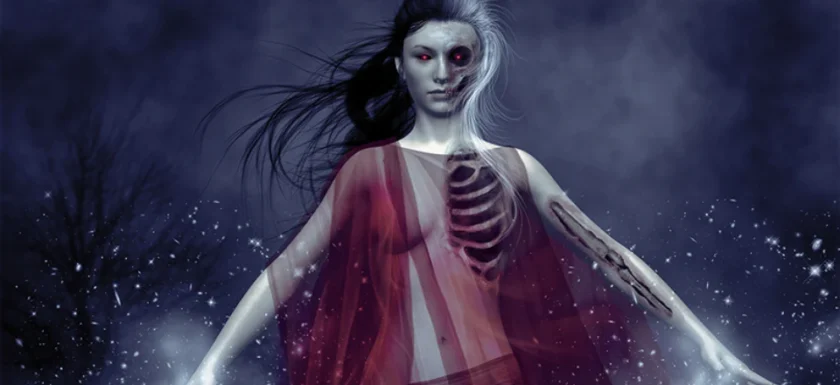
About:
In Norse mythology, the goddess Hel is in charge of Helheim, the afterlife. She is the child of the giantess Angrboda and the trickster deity Loki. Hel is frequently pictured as being dark and solemn, half-dead and half-alive. She is in charge of deciding the afterlife’s fate as the underworld’s gatekeeper.
7. Tyr
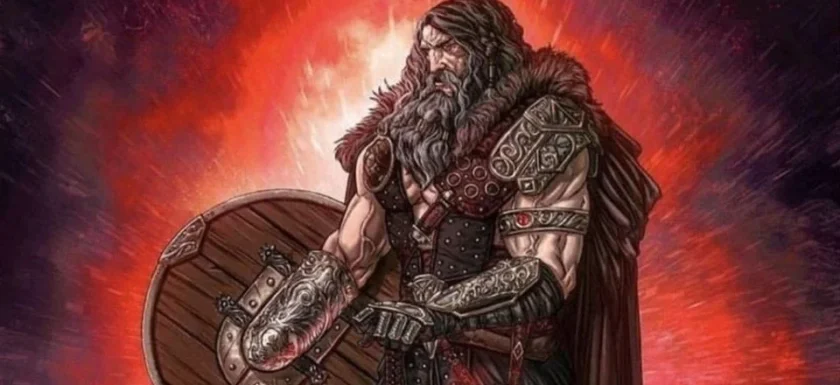
About:
In Norse mythology, the god Tyr is linked to bravery, the rule of law, and justice. He is typically depicted as a one-handed warrior since he lost his hand in a confrontation with the terrible wolf Fenrir. Tyr, the son of Odin, ranks among the most adored deities in the pantheon.
He was frequently asked to settle conflicts and uphold vows and commitments made between people. Tyr was sometimes considered the god of hand-to-hand combat and was connected to war as well.
Also Read:
- Top 11 Ancient Egyptian Gods and Goddesses you should know!
- Top 20 Most Interesting and Unknown facts about Somnath Temple
8. Balder
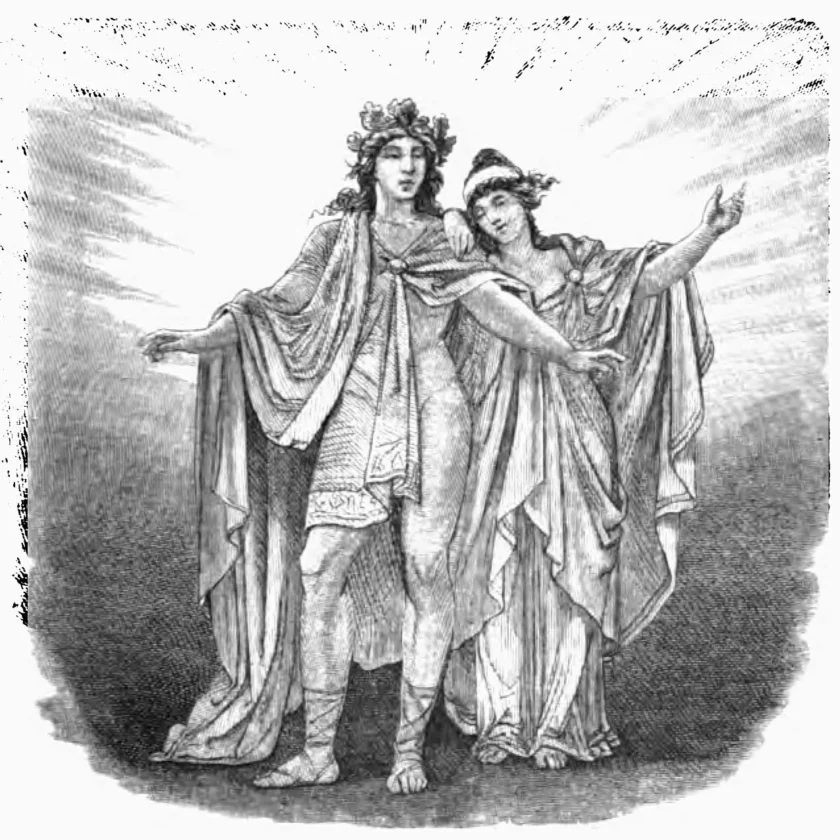
About:
The god of light, innocence, and purity is known as Balder in Norse mythology. He is the offspring of Odin and Frigg and is portrayed as a charming and kind man. Of all the gods, Balder is thought to be the most adored by both gods and mankind.
He was connected with harmony and was thought to spread joy and light everywhere he went. Yet Balder’s life ended when his blind brother Hodr, who had been misled by Loki, killed him.
9. Heimdall
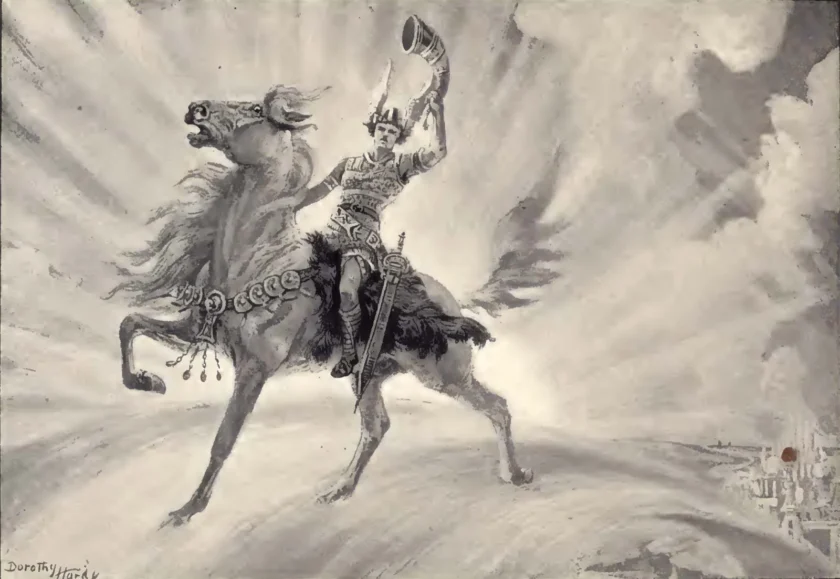
About:
In Norse mythology, Heimdall is a god who is regarded as the protector of Asgard, the home of the gods. He is frequently shown standing on the Bifrost rainbow bridge, which links Asgard to the world of mankind, as a watchman. It is said that Heimdall has extraordinary senses, including the capacity to see the grass grow and see a very long way. He is linked to the ocean and is said to have the ability to command the waves.
10. Njord
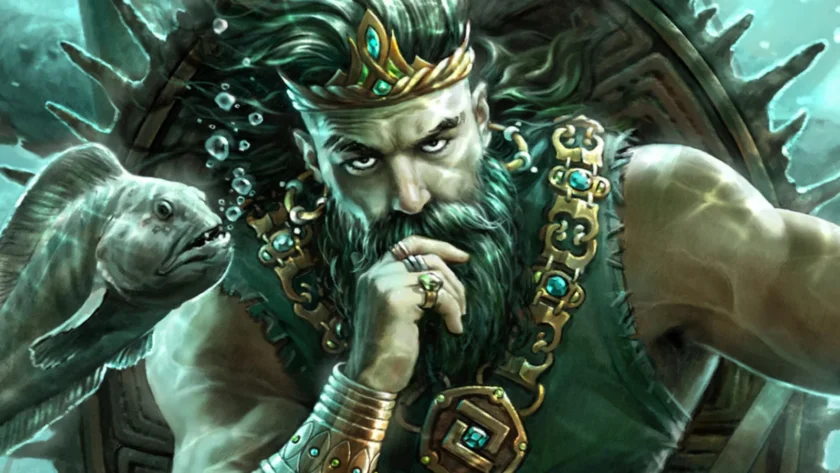
About:
The deity Njord is related to the ocean, fishing, and sailing. He is frequently portrayed as a wise and kind person because he is the dad of the gods Frey and Freyja.
Njord was initially connected to the Vanir, a collection of deities who were thought to be connected to fertility and nature, but he eventually became connected to the Aesir, the principal collection of deities in Norse mythology.
11. Skadi
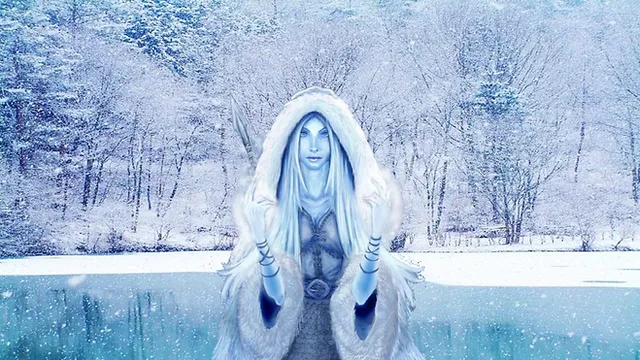
About:
The goddess Skadi is connected to winter, hunting, and skiing. She is frequently portrayed as a tough and independent character and is the offspring of the giant Thiazi.
The marriage of Skadi to the god Njord, which was intended to end hostilities between both the Aesir and the giants, is what made her most well-known. Skadi finally got a divorce from Njord because she was uncomfortable there.
12. Bragi
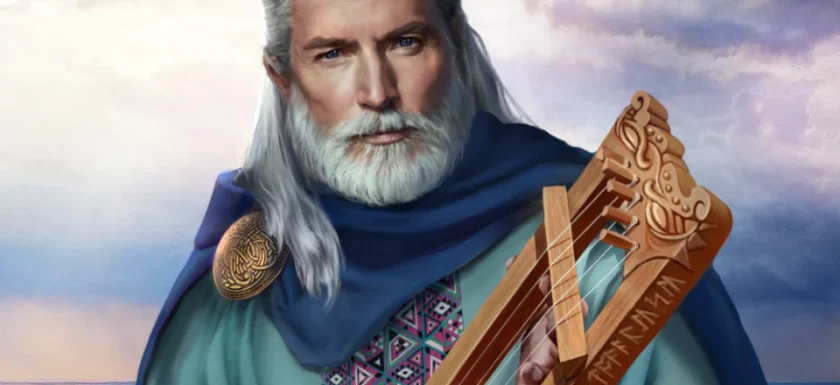
About:
Bragi is a god who is linked with poetry, music, and eloquence. He is typically shown as an elderly, learned guy with a harp in his hands and a thick beard.
The god Bragi, a descendant of the god Odin, is married to the deity Idunn, who is associated with youth and renewal. Bragi is regarded as a master of words, and both musicians and writers commonly draw inspiration from him.
13. Idun
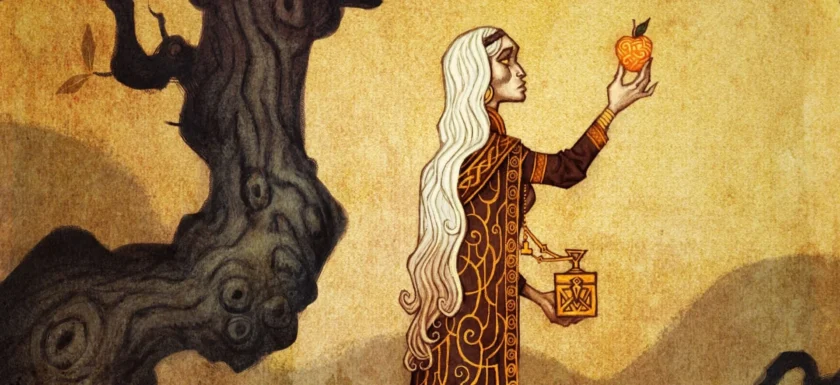
About:
Idun, also spelled Idunn, is a goddess linked to rebirth, youth, and the power of apples. She is frequently portrayed as a lovely and generous woman and is the wife of the god Bragi. The golden apples, which were thought to bestow the gods with endless youth and vitality, were kept by Idun, who is best known for playing that role.
According to legend, the gods would consume apples from Idun to reclaim their youth and vitality when they started to display signs of aging and mortality. Idun was a famous and adored character in Norse mythology because of her significant role in preserving the health and welfare of the gods.
14. Sif
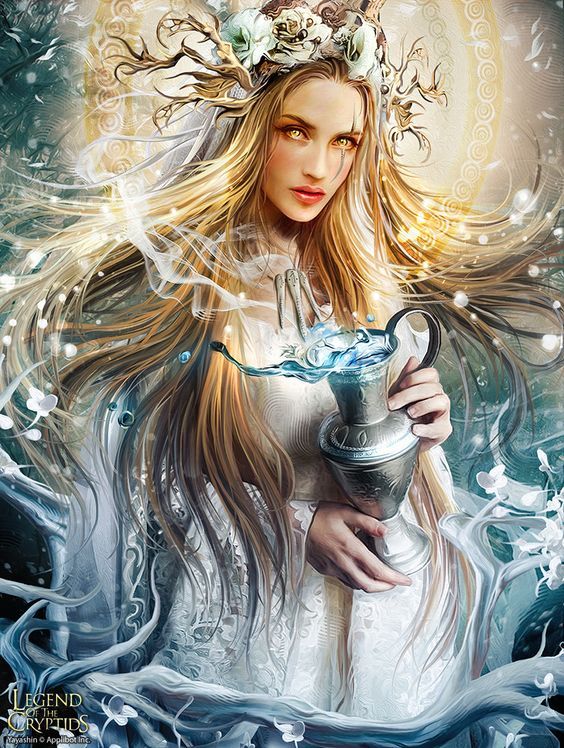
About:
The goddess Sif is linked to the harvest, family, and fertility. She is the wife of the god Thor and is typically described as a lovely and gentle person. Sif’s beautiful, golden hair, which she was believed to treasure beyond everything else, is her most noticeable trait.
Sif’s hair was reportedly hacked off by the naughty god Loki as a joke, but he later atoned by having a bunch of dwarfs constructs a new set of hair out of gold.
15. Aegir
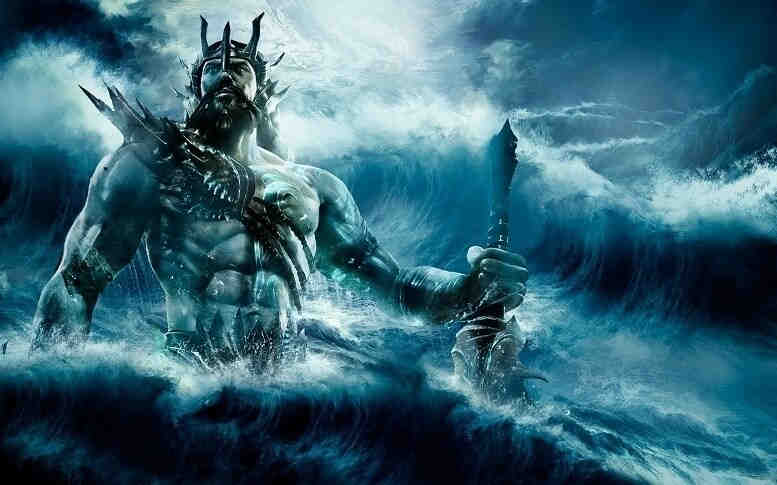
About:
The god Aegir, who is often referred to as gir, is associated with both the sea and the ocean. He’s typically shown as a large man with long hair and a beard, and he’s said to be capable of manipulating the tides and the waves.
Aegir is commonly associated with wealth and success and was believed to be the guardian of sailors and fishermen. The goddess Ran, who is linked to the sea and the drowned, is thought to have been his wife.
Your Turn!
Norse mythology is a complex tapestry of gods and goddesses who represent a wide range of ideas and values. From the strong warrior gods like Odin & Thor to the kind and understanding goddesses like Sif and Idun, the Norse pantheon features a diverse cast of figures who have captured people’s creativity for millennia. Every one of these gods has a vital role in mythology, either as a creator, a protector, or an inspiration.
The fact that Norse mythology’s gods and goddesses are still adored and worshipped today, regardless of the reality that their tales have been passed down for millennia, shows that the mythology continues to fascinate and motivate people beyond time and space.

